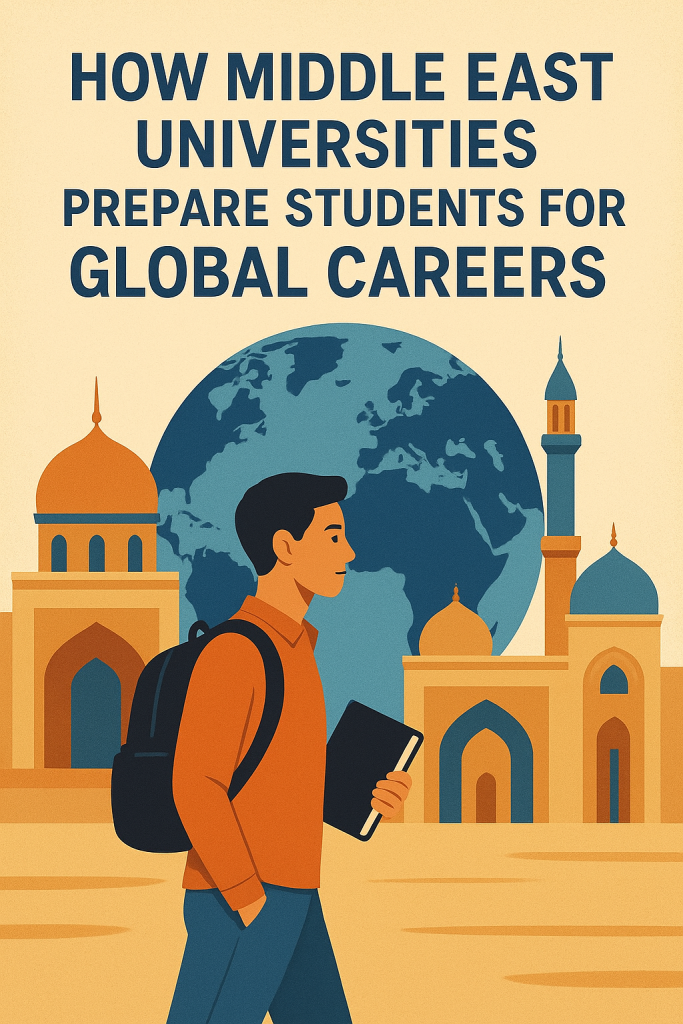
Bridging Local Roots with Global Ambitions
In a region once defined by oil economies and traditional industries, Middle Eastern universities are now emerging as gateways to the global workforce. Their classrooms no longer simply prepare graduates for domestic markets — they train global citizens ready to thrive in an interconnected, AI-driven world.
This transformation is not accidental. It’s the result of deliberate strategies blending academic excellence, international collaboration, and skill-based education designed to align with 21st-century global careers.


